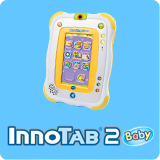


The more babies are exposed to language the faster they will begin to pick up it up. Adults can facilitate babies’ language development by playing with them, focussing on particular toys, reading books and naming everyday objects. They are predisposed to pick up the sounds of the language that they hear around them.
VTECH LEARNING LODGE DOWNLOAD MANUAL
This manual dexterity emerges during the infant’s first year and, with plenty of opportunities to manipulate and play with toys and objects, becomes a highly tuned ability. Humans have highly developed manual dexterity skills that distinguish them from any other species on this planet.Aiming and concentrating on a target improves hand/eye coordination.The confidence to explore and discover new things develops during infancy and creates a healthy curiousity about the world throughout childhood. Babies can show uncertainty about a new toy and in order for them to confidently explore and discover it they need the emotional reassurance from their parent or caregiver. Adults can influence an infant’s confidence about the world by encouraging and smiling at them when they approach an unfamiliar object or toy. Once babies are either crawling or walking their mobility gives them more opportunities to explore their world.īabies need to satisfy their curiosity about an object or toy by approaching and handling it. Babies learn a great deal through repetition.

Exploration and play are closely linked in infants where, for example, discovering that a toy makes a noise leads to infants repeating the action that made the noise. Kicking and waving their arms while lying in their cot can lead them to discover that a kick can make a banging sound. Even young babies love to learn about the world through exploration.Heightens curiosity and encourages exploration.Giving babies plenty of opportunities to hear music, singing, rhythm and talk enhances their learning and prepares them for the social world where they will talk, sing, play and listen to music. Even in their first year babies are distinguishing between musical tunes on the basis of rhythmic patterns and later they begin to recognise the same melody played in a different key. At the same time they become increasingly sensitive to music and musical patterns. As babies develop their auditory abilities narrow so that eventually babies are only sensitive to those sound categories specific to their native language.Īs soon as babies are born they are influenced by what they hear around them and modify what they able to hear, accordingly. Young babies are quite sensitive in their auditory abilities and can perceive all the categorical sound distinctions in world languages. This is sometimes referred to as ‘infant directed speech’ or even ‘baby talk’. They are especially aware of the sound of language and like to be spoken to slowly and with a high pitch. Young infants listen longer to the sound of human voice and seem to prefer it to any other sound. This ability to recognise the direction that a sound is coming from improves greatly during the first few years of life. Infants will turn towards the sound of a toy and begin to reach towards it. Even very early in life babies can hear a wide variety of sounds.Fun and interesting sound effects draw baby’s attention to play.


 0 kommentar(er)
0 kommentar(er)
